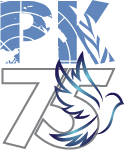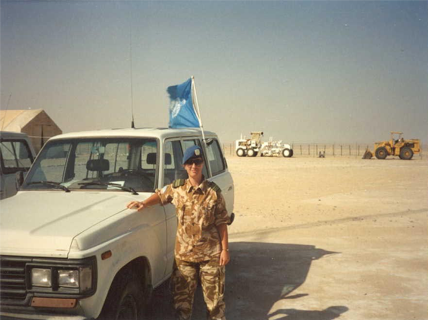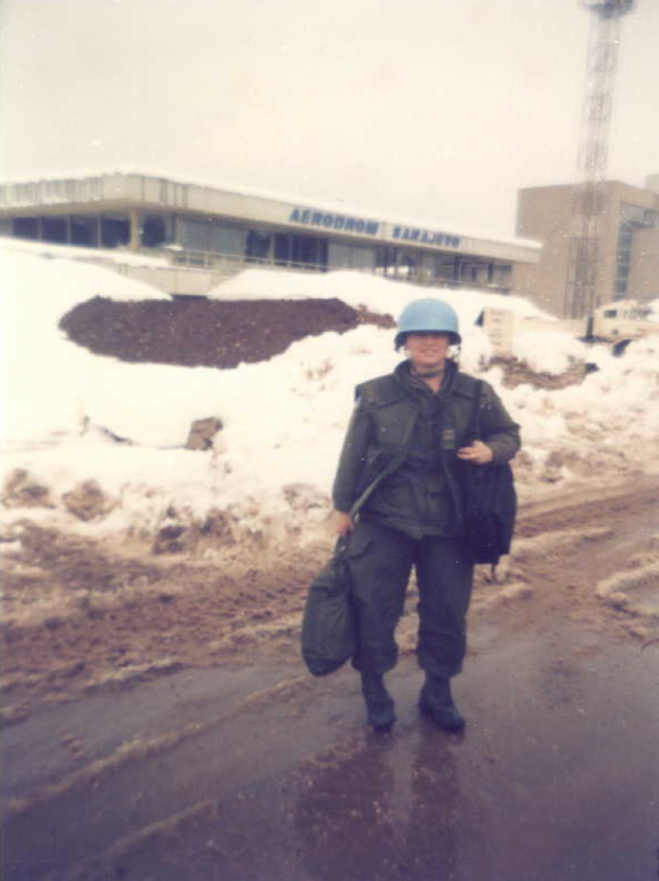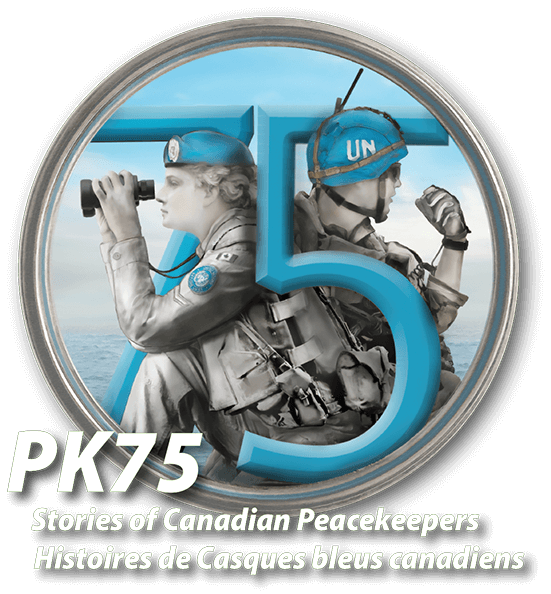

United Nations Transition Assistance Group (UNTAG) was an unusual mission, as the UN assumed responsibility for the German Southwest Africa (Namibia) territory — about the size of Saskatchewan — which had been administered by South Africa, and were now willing to allow it to gain independence. Unlike other UN missions where the UN posted troops to monitor a ceasefire line, this mission involved a territory transitioning into a country. The UN authorities assumed responsibility for administering the territory from the departing South African Defence Force, and actually governed it. Launching this mission was in the planning stage at the UN for some years awaiting all of the approvals necessary. Each time it appeared that approval was imminent, the plans were reviewed, amended, and perfected, then placed on hold when the approval was not granted. As a result, unlike other missions that were launched in short timeframes, UNTAG was very well-planned. Each UN mission has a unique ribbon adorning the UN peacekeeping medal. For the UNTAG one, in the centre were five coloured lines representing the five continents engaged in the mission. To the left and right of centre, were two wider bands to represent the sands of the Namib and Kalahari deserts within the territory, and on each edge was a similarly wide band of UN blue.
Unlike the MFO mission on which I had previously served, UNTAG’s senior leader was the Special Representative of the Secretary General (SRSG). I did not expect to have civilian leadership in a peacekeeping mission, yes, based upon my vast experience of one. However, this different focus was the beginning of more multidimensional modern peacekeeping. It was especially important in a place such as Namibia, as many of the inhabitants were never allowed to vote. If we were to govern the territory, enumerate all of the citizens to enable them to vote, encourage the rise of political parties, ensure free and fair elections, and supervise the transition of power to these elected officials, we needed special skills and expertise. In fact, it was decided that formed police units were required and Canada agreed to send a contingent of RCMP. While members of other countries had heard of the famed Mounties, they expected them to emerge from the airplane on their trusted horses and wearing red serge. That was not to be, as the Mounties, unaccustomed to peacekeeping in warm weather, wore military tropical tan uniforms with their insignia.
There were many other key experts, aside from military and police, such as those who were tasked with governing the territory. Also, some very important officials were those with expertise in elections. The UN wanted to ensure that these elections were certified to be free and fair, so it was imperative that everything be done properly from the beginning. As Canada provided a Logistics Unit, our drivers were tasked with transporting election officials to every corner of the territory to enumerate anyone of voting age. Of course, they also had to divide the territory into voting districts, establish voting rules, create voting lists, identify polling stations, and all of the other complex arrangements necessary to ensure these free and fair elections. I was excited to be a part of history and volunteered to be deployed to a polling station. What a great opportunity to support these elections. Alas, just before the elections occurred, however, election officials determined that military — even though we were to wear civilian attire — were not allowed at polling stations. They did not want there to be any possibility, or even the appearance of, intimidation to vote.
Still, I was able to witness election day in Windhoek, the capital city. People who had never been allowed to vote in their lives formed a queue at the polling stations, and the lines went on for blocks. They brought food and cool drinks and music. It was a party! Imagine finally being granted the right to vote for the future of your country. The elections happened, victories were declared, the elections were determined to be free and fair, and the UN then commenced the procedures to transition the territory to become the country of Namibia under its newly elected leaders. As a measure of success, Namibia quickly joined the UN and a few years later sent peacekeepers to another UN mission. We participated in a celebration at the rugby stadium in Windhoek which was such a cause for joy. However, my most poignant memory was of the crowds queued to vote, enjoying their first taste of democracy, and thus why I appreciate my opportunity to live in a democracy and to exercise my right and obligation to vote in every election, municipal, provincial, or federal. It is something I took for granted prior to this peacekeeping experience.
Biography
“Join the Forces, See the World” was the advertisement I read whilst in high school and pondering my future. My education. My career. I enrolled in the Regular Officer Training Plan (ROTP), attended the University of Guelph, graduated with honours, was commissioned as a logistics officer, and served in the typical roles at unit, base and at National Defence Headquarters in Ottawa. As a young Captain, I had a great posting as a career manager. These ‘lucky’ people decide, in conjunction with outside Canada, promotion and other boards, where those in their classification are posted. This job was stressful; as a reward, one normally received a desired posting upon tour completion. I chose peacekeeping and followed a unique career path.
My first peacekeeping mission was as Adjutant of the Canadian Contingent Multinational Force and Observers (MFO) based in the Sinai, Egypt. This mission, although configured like a United Nations (UN) mission, was not UN. The headquarters was in Rome, the Force Commander from Norway, with contingents from Colombia, Fiji, the Netherlands, UK, New Zealand, France, Canada, the U.S. and more. The structure was like a classic UN mission with the Force Commander as Head of Mission; it was the structure with which I was familiar and one I figured was the norm for all missions. After sixteen months plus in mission, I returned to Canada, but was given an opportunity for a peacekeeping mission less than a year later. I returned to Africa and to the United Nations Transition Assistance Group (UNTAG) mission, in Namibia.
Next, a posting to headquarters in Ottawa, but then, an opportunity for another peacekeeping mission, now with the UN Protection Force, in the Former Yugoslavia. This was a different mission — in a cold weather country. We lived in a former Yugoslav army base, but the buildings didn’t have sufficient heat and we were lodged in tents. Living in a tent in the winter is okay for a weekend or an exercise, but for a deployment, these were difficult conditions. Upon my return from a seven-month tour, I was posted to the Joint Staff at headquarters in Ottawa where our main focus was on peacekeeping and operations.
Many thought that, at the end of the Cold War, there would be a reduction in the need for military troops, however, the reality was quite different, and the UN launched an unprecedented number of peacekeeping missions in the 1980s and 1990s. They were so busy planning missions, that they asked countries with military forces who had peacekeeping experience, to be seconded to the UN headquarters in New York. In 1995, I was seconded for three years to UN Headquarters Department of Peacekeeping Operations. I had the honour to be a representative of Canada and worked with other seconded officers from the Netherlands, Brazil, Turkey, Sweden, France, Belgium and more. I was exposed to people from more countries than any UN peacekeeping mission. Upon my return to Ottawa, I was responsible for United Nations arrangements (negotiating arrangements between the Canadian military and the UN for deployments of Canadian peacekeepers to UN missions) and then for North Atlantic Treaty Organization (NATO) arrangements.
I left the military in mid-July 2004, and immediately started working for the UN as a civilian logistics Section Chief at the UN mission in Côte d'Ivoire for two years.
Back home in Canada, I was recruited to instruct and be a role player with the Pearson Peacekeeping Centre, to staff the UN Integrated Mission Staff Officers Course which was delivered in Canada, and to develop an Operational Peacekeeping Logistics Course which was delivered at various overseas locations, including the Kofi Annan International Peacekeeping Training Centre in Accra Ghana, and the Kenyan peacekeeping centre in Nairobi.
On the basis of my experience and expertise, I was also contracted by the U.S. State Department to give UN instructor, staff officer, and logistics courses and exercises from Mongolia to Nepal to Tunisia, from Malaysia to Morocco to Ukraine, and more. Moreover, as I am bilingual (thanks to my military training), I also worked for the Organisation Internationale de la Francophonie delivering courses and training in French in Mali, Sénégal, Burkina Faso, and Chad. In Nepal, I recall seeing a sign on the side of a school — ‘Education is the future of our nation’. I am honoured to have taught a future generation of peacekeepers.

Shelagh in Kuwait.

Sarajevo.


